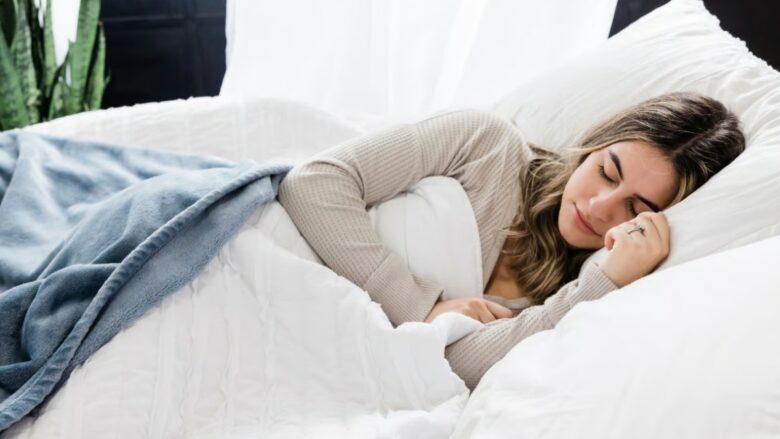A good night’s sleep is more than just rest—it’s essential for your physical health, mental clarity, emotional stability, and long-term wellness. However, many people struggle with falling asleep or staying asleep due to poor sleep habits. That’s where sleep hygiene comes in. Sleep hygiene refers to the behaviors and environmental factors that influence the quality of your sleep. By creating a healthy nighttime routine and optimizing your sleep environment, you can dramatically improve your ability to fall asleep faster, sleep deeper, and wake up feeling refreshed.
What Is Sleep Hygiene?
Sleep hygiene is a collection of practices designed to improve the quality and consistency of sleep. These practices include setting a regular sleep schedule, creating a relaxing bedtime routine, managing your environment, and limiting behaviors that interfere with sleep. When done consistently, good sleep hygiene can help reduce insomnia, improve sleep duration, and boost overall well-being.
Understanding how sleep works can empower you to make the right changes. Sleep occurs in cycles, with different stages playing unique roles in healing, memory consolidation, and hormone regulation. Disrupting these cycles through erratic habits or an unsupportive environment can result in poor sleep quality, even if you’re spending enough time in bed.
Set a Consistent Sleep Schedule
Your body operates on a 24-hour internal clock called the circadian rhythm. This natural rhythm is influenced by light and dark signals, and it plays a major role in determining when you feel alert or sleepy. Going to bed and waking up at the same time every day helps regulate this rhythm, making it easier to fall asleep at night and wake up feeling rested.
Consistency strengthens your sleep-wake cycle and trains your brain to associate certain times with sleep. Avoid the temptation to sleep in on weekends, as this can disrupt your rhythm and make Monday mornings even harder. If you need to adjust your sleep schedule, do it gradually—shifting your bedtime or wake time by 15-minute intervals over several days.
Create a Sleep-Inducing Bedroom Environment
The bedroom should be a place where your body instinctively feels ready to sleep. Light, noise, temperature, and comfort are key factors that influence sleep quality. Exposure to artificial light—especially blue light from phones and TVs—can signal your brain to stay awake by suppressing melatonin production. Aim to dim your lights in the evening and limit screen time at least one hour before bed.
Noise disturbances can also disrupt sleep, so consider using white noise machines or earplugs to block out environmental sounds. Keeping your room cool—ideally between 60–67°F (15–19°C)—helps signal your body it’s time to sleep. A comfortable mattress, supportive pillows, and breathable bedding complete the sleep-friendly environment.
Establish a Relaxing Bedtime Routine
What you do in the 30–60 minutes before bed has a significant impact on how easily you fall asleep. A relaxing routine helps signal your brain that it’s time to wind down. Activities such as reading, meditating, stretching, or taking a warm shower can calm the nervous system and promote a smooth transition into sleep.
Avoid stimulating activities like watching intense TV shows, scrolling through social media, or checking work emails. These not only expose you to blue light but also keep your mind active and anxious, which delays sleep onset. Instead, engage in quiet and soothing activities that support relaxation.
Be Mindful of Food and Drink
The timing and type of food and beverages you consume in the evening can either support or disrupt sleep. Caffeine, found in coffee, tea, soda, and chocolate, is a stimulant that can remain in your system for up to six hours. For better sleep, avoid caffeine in the late afternoon and evening.
Alcohol may make you feel sleepy initially, but it interferes with the deeper stages of sleep and often causes nighttime awakenings. Similarly, large meals close to bedtime can lead to discomfort or indigestion. If you’re hungry before bed, opt for a light snack that includes sleep-friendly nutrients like magnesium or tryptophan, such as bananas or almonds.
Chart: Sleep Hygiene Practices and Their Impact on Sleep Quality
| Sleep Hygiene Practice | Impact on Sleep | Difficulty Level |
|---|---|---|
| Consistent Sleep Schedule | Improves sleep duration and quality | Moderate |
| Limiting Screen Time | Enhances melatonin production | Easy |
| Dark, Quiet Sleep Environment | Reduces nighttime disruptions | Moderate |
| Evening Relaxation Techniques | Helps reduce stress before bed | Easy |
| Avoiding Caffeine and Heavy Meals | Prevents sleep interruptions | Easy to Moderate |
Source: Sleep Foundation, NIH, CDC
Frequently Asked Questions (FAQ)
What is the ideal number of hours of sleep for adults?
Most adults need between 7 to 9 hours of sleep each night for optimal health. Some people may need slightly more or less, but chronic sleep deprivation can lead to serious health issues.
Is it harmful to use my phone in bed?
Using your phone exposes you to blue light and can stimulate your brain, making it harder to fall asleep. It’s best to avoid screens for at least an hour before bedtime.
Can I improve my sleep by exercising?
Yes, regular physical activity supports better sleep. However, exercising too close to bedtime can be stimulating. Aim to finish workouts at least two to three hours before going to bed.
How do naps affect nighttime sleep?
Short naps (20–30 minutes) can improve alertness, but long or late-day naps may interfere with nighttime sleep. If you have trouble sleeping at night, consider skipping naps.
Should I go to bed at the same time on weekends?
Yes. Keeping a consistent sleep schedule, even on weekends, helps regulate your circadian rhythm and promotes deeper, more restful sleep.
Conclusion
Improving your sleep hygiene is one of the most effective ways to enhance your overall health and well-being. By making small but meaningful adjustments—like maintaining a consistent sleep schedule, creating a peaceful bedroom, limiting screen exposure, and adopting a relaxing bedtime routine—you can significantly boost the quality of your rest.
Sleep isn’t just about the number of hours you spend in bed. It’s about the quality of those hours. Practicing good sleep hygiene ensures that your time asleep is truly restorative, helping you wake up with more energy, better focus, and a stronger immune system.
If you’ve tried improving your sleep hygiene and still struggle with poor sleep, consult a medical professional. Conditions like insomnia, sleep apnea, and anxiety may require targeted treatment, and a healthcare provider can guide you toward the right solution.




